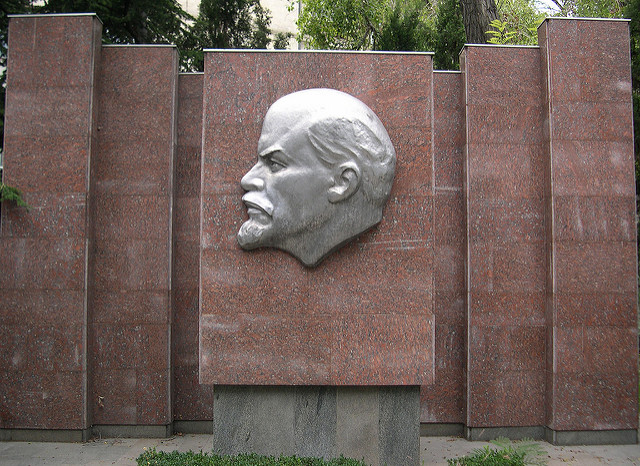The Cold War was an asymmetric struggle. While communism did not form the monolithic bloc that its liberal democratic critics claimed, the breadth of overt political contestation was kept to a minimum. In the leading liberal capitalist states, by contrast, partisans of a range of political views, from Stalinism to fascism, engaged in intense, multivalent ideological competition.
While the political establishment sometimes to steps to rein in the conflict, such as in the case of McCarthyism, or of the banning of the German Communist Party, the limitations places on the contestation of ideas was relatively moderate. And thus in ivy-covered halls and in elite journals, the ideological struggles of the Cold War raged. Ideas that shaped the fates of millions were mapped on to the competition for fellowships and column inches. With the stakes so great and at the same time so paltry, it is hardly surprising that things got ugly.
David Caute’s Isaac and Isaiah: The Covert Punishment of a Cold War Heretic provides a fascinating illustration of the shape and intensity of these conflicts on the upper floors of the ivory tower. The book centers on the long running conflict between Isaiah Berlin and Isaac Deutscher, and in particular on the possibility that Berlin may have used his influence to deny Deutscher a coveted teaching position. As a fellow at All Souls College, Oxford in the early 1960s, Caute was a junior colleague of Berlin’s. Starting with a conversation with Berlin that Caute shared in the common room at All Souls in March 1963, Caute weaves a story of the conflict and resentment that arose between the two men. In Caute’s telling, it exemplifies the ways in the which personal and political became mutually imbricated in the era of the Cold War.
On the face it, there is much that might have tied Berlin and Deutscher together. Both were eastern European Jews, Berlin born in Riga and educated in Russia, while Deutscher grew up in Polish-speaking Galicia. Both fled totalitarianism in eastern Europe for the more (both intellectually and physically) welcoming atmosphere of Great Britain. It is in this latter detail that the origins of their conflict lay. Berlin’s family left Russia in the early 1920s. As the son of an international timber merchant, Berlin’s bourgeois origins made his position, and that of his family, increasingly uncertain during the spiraling radicalism of Bolshevism in the period leading up to the formation of the Soviet Union. Deutscher and his family, by contrast, found themselves under increasing threat from the radical antisemitism of the Nazis in the late 1930s. In April 1939, Deutscher moved to London as a correspondent for the Zionist newspaper Nasz Przeglad, a moved the spared him the fate of most the rest of his family who fell victim to the Holocaust.
These experiences formed the bases of the ideological divide that separated the two men. Berlin, whose family had originally been generally sympathetic to the revolution, was strongly influenced by the violence and lawlessness of life under Bolshevism. His rise to the status of doyen of scholarly capital L liberalism was shaped by the depredations of Stalin both in politics and culture. Caute argues convincingly for a fundamental connection between Berlin’s distaste for every facet of Stalinism and his commitment to a negative account of liberty outstripping that of even John Stuart Mill in its intensity. By the early 1960s, Berlin was ensconced in one of the most eminent scholarly institutions in the West, and a figure much in demand in both the media and high society. From his days as a young émigré he had climbed to the highest reaches of the liberal democratic establishment.

Deutscher, on the other hand, was in many important respects a child of the era of the rise of European fascism. For Deutscher, as for many on the European left in the 1930s, the choice was a stark one: fascism or communism. That the latter might need to be accepted with a considerable admixture of rot was more than made up for by the need to oppose the pernicious and homicidal racial doctrines central to fascism in general, and to Nazism in particular. Deutscher spent much of his post-emigration life detailing the political history of the communist movement to which he was devoted, if in a somewhat unorthodox version.
Deutscher’s political biography of Stalin (1949) and his three volume work on Trotsky (published between 1954 and 1963) established his credentials as an expert on Soviet history. He supported himself through journalism and with occasional academic fellowships, but unlike Berlin was not able to translate his considerable intellectual talents into a continuing position in the academic establishment. This had in part to do with the fact that he had emigrated at a later point in life (age 32) than had Berlin (age 11,) and had never received a university degree. But, as Caute’s narrative makes clear, his failure to receive a position for which his extensive historical and journalistic work would seem to have qualified him can be, in at least one case very significant case, attributed to the malign machinations of Berlin.
On the face of it this is peculiar because, although he was intensely anticommunist, Berlin was also a firm partisan of academic freedom. He retained cordial, if critical, relationships with a number of leftist scholars, most prominently Edward Hallet Carr. Caute records numerous instances in which he reiterated his commitment to the right of scholars to hold whatever views the available evidence might support.
Moreover, Deutscher was anything but a doctrinaire or slavish follower of Stalin. In the years following Stalin’s death in 1953, Deutscher was frequently and quite unsparingly critical of the path that the Soviet Union had taken after Lenin’s death. Although he did not condemn Stalin with the degree of vitriol evinced by liberal anticommunists, he was nonetheless clearly aware of the degree to which Stalin’s regime had demolished the ideals and political institutions that the makers of the revolution had sought to build up.
Caute traces the manifold nature of the animosity that grew up between the two men (felt more profoundly on Berlin’s part than on Deutscher’s.) Starting with Deutscher’s review of Berlin’s Historical Inevitability (1954,) which Berlin viewed as unduly and unfairly disparaging, Caute traces a long list of sites of contention, including the situation in the post-Stalinist Soviet Union, Zionism, the war in Vietnam, and the role of the New Left in the politics of the West. In each case, Caute shows the ways that personal and political animosities intermingled. In the case of the New Left, for instance, Caute shows how Berlin’s distaste for the political movement became imbricated with his animosity toward Deutscher as the latter became a political reference point for them. This was particularly ironic given that rather than egging the young radicals on, in the way that Herbert Marcuse had done, Deutscher played the role of stern and disapproving critic, taking the leadership of the New Left to task for failing to understand the political history of European communism.
Caute’s book makes for interesting reading, not least because of the element of personal engagement that appears just below the surface. His text is dotted with parenthetical asides in which he offers critical commentary on views advanced by both sides. As a moderate liberal, former columnist for the New Statesman, and personal acquaintance of Berlin, Caute might be expected to take the part of his former Oxford colleague. That he does not do, but rather offers substantial criticism of the views of both sides makes for a rich and substantial narrative. It is clear from the evidence that he adduces that Berlin did, in fact, exert his influence to the detriment of Deutscher’s career prospect, then sought to deny it after Deutscher’s death in 1966. What makes the story interesting is not simply rendering of the intellectual contours of the Cold War, but rather illustration of the ways that intellectual conflict spans the gap between the sublime and the trivial.
Photograph courtesy of Joel Schalit





